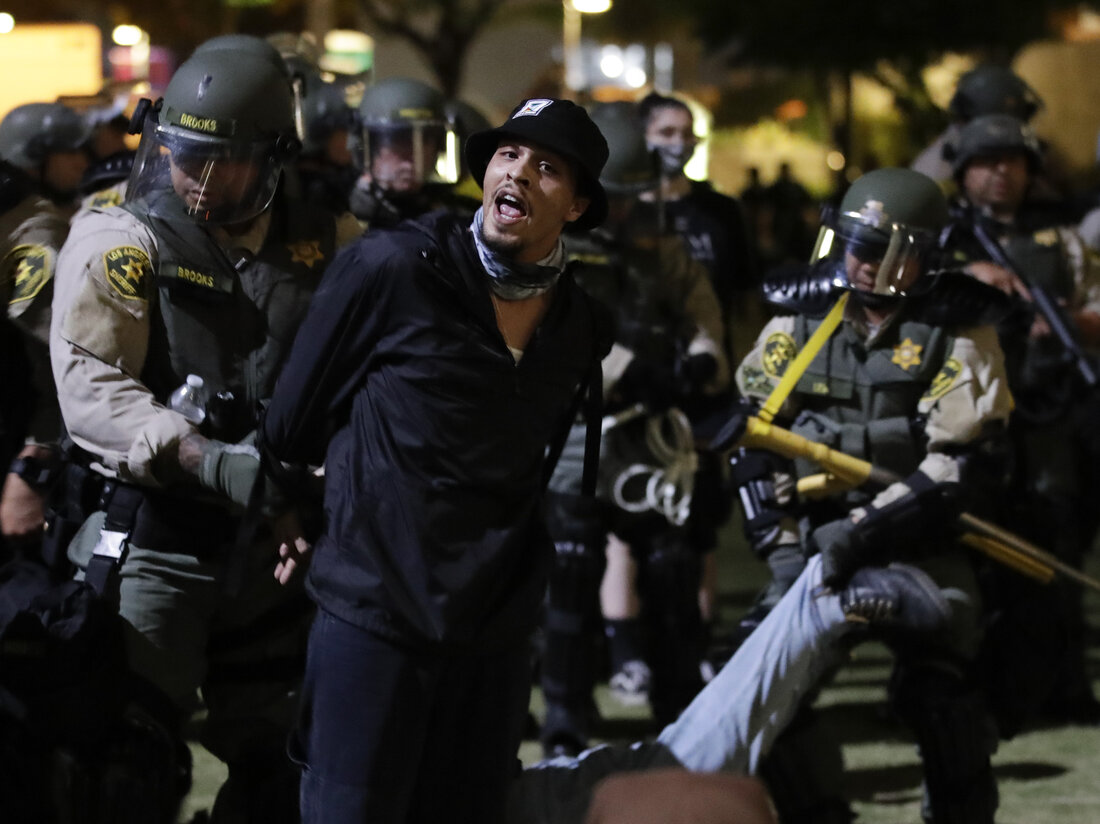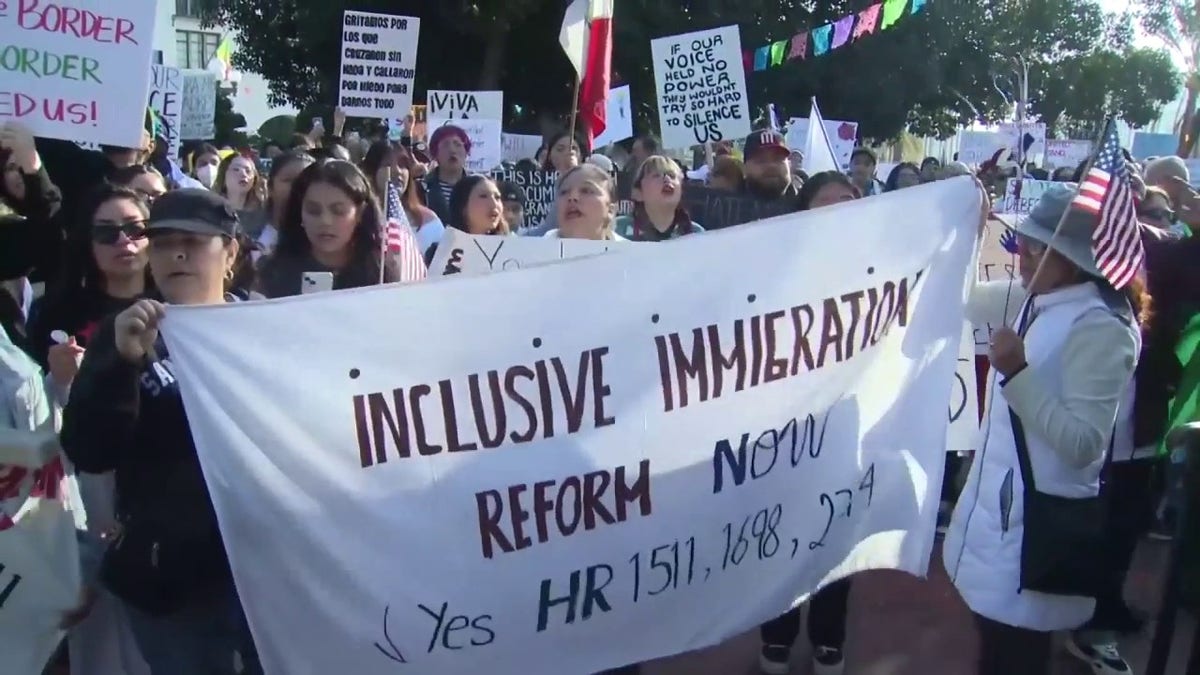Former World Champion Boxer Julio César Chávez Jr. Detained by ICE Sparks Ongoing Protests

Julio César Chávez Jr., former world champion boxer, detained by ICE
On August 1, 2021, former world middleweight champion Julio César Chávez Jr. was detained by immigration officials in California. According to the Department of Homeland Security, Chávez is wanted on organized crime charges in Mexico and was taken into custody for deportation.
The Similarities of Chávez's Detention and Other Recent Incidents
This is not the first time a student or prominent figure has been detained by ICE in recent years. In 2019, a Tufts University student from Turkey was released from immigration custody after being caught up in the campaign to deport pro-Palestinian campus activists. Similarly, in 2020, Columbia University student Mahmoud Khalil was arrested by ICE and footage released by his legal team showed him cooperating with agents before being detained.
In another incident this year, New Jersey Representative LaMonica McIver was charged with assaulting law enforcement officers outside of an ICE detention facility. This has caused criticism of ICE's tactics, with some accusing them of being too heavy-handed in their approach to arrests.
The Ongoing Protests Against ICE
In response to ICE's actions, protests have been ongoing in major cities, including Los Angeles. In 2019, protesters and riot police clashed in downtown LA after a day of immigration raids. Most recently, in July 2021, ICE conducted a large-scale raid at a meat production plant in Omaha, Nebraska, resulting in dozens of detentions.
These incidents have sparked ongoing tensions between the Trump administration and California Governor Gavin Newsom, as protests continue to spread to other cities, including New York.
The Impact of ICE's Actions
The recent incidents involving ICE have raised concerns about the treatment of immigrants and the use of force by law enforcement. The heavy-handed tactics used by ICE have led to criticism and backlash, with many calling for more humane and compassionate approaches to dealing with immigration issues.
The detention of Julio César Chávez Jr., a well-known figure in the world of boxing, has shed light on the ongoing struggle of immigrants and the controversial actions of ICE. As the issue continues to make headlines, it is important for society to reflect on the treatment of immigrants and the need for reform within the immigration system.
About the People Mentioned
Julio César Chávez Jr
Julio César Chávez Jr. is a Mexican professional boxer born on February 16, 1986, in Culiacan, Sinaloa, Mexico. He is the son of the legendary boxer Julio César Chávez, one of Mexico's most celebrated fighters. Chávez Jr. began his professional boxing career in September 2003 and quickly gained attention due to his family's boxing legacy. Chávez Jr. has had a notable career, becoming the WBC middleweight champion in 2011. His professional record includes 48 wins, 2 losses, and 1 draw, with 32 victories by knockout[2]. He has fought against prominent opponents such as Saul Alvarez and Sergio Martinez. Despite his achievements, his career has been marked by inconsistency, including a recent period where he went 6-5 in his fights[4]. In recent years, Chávez Jr. has been involved in high-profile bouts, including a split decision against former UFC champion Anderson Silva in 2021[2]. He also faced Jake Paul in a cruiserweight match in June 2025, losing by unanimous decision[2]. These events have kept him in the public eye, even as he navigates the challenges of maintaining a successful boxing career. Outside of boxing, Chávez Jr.'s personal life has faced challenges, including a recent arrest on gun charges before being released into a rehabilitation program[4]. Despite these challenges, he remains a figure of interest in the boxing world, both for his lineage and his continued participation in significant matches. As of June 2025, he is 39 years old and continues to be active in the sport[3].
Gavin Newsom
Gavin Christopher Newsom, born October 10, 1967, in San Francisco, California, is an American politician and businessman currently serving as the 40th governor of California since January 2019. Raised in an established San Francisco family and educated at Santa Clara University, where he studied political science, Newsom began his political career in 1996 with an appointment to the San Francisco Board of Supervisors, after serving briefly on the city’s Parking and Traffic Commission. Newsom was elected mayor of San Francisco in 2004, becoming the youngest mayor in over a century. His tenure was notable for progressive initiatives, including directing the city to issue marriage licenses to same-sex couples in 2004, a pioneering move in the national movement for marriage equality. He also launched the Healthy San Francisco program, expanding access to healthcare for uninsured residents. After serving as mayor until 2011, Newsom was elected lieutenant governor of California, holding that office from 2011 to 2019. As governor, Newsom has focused on progressive policy areas such as gun control, criminal justice reform, environmental protection, affordable housing, and universal healthcare access. His administration has prioritized tackling homelessness, improving public safety, and expanding educational opportunities. Notably, he imposed an early moratorium on executions in California and led the state's response to the COVID-19 pandemic, implementing some of the strictest health measures in the country. Newsom survived a recall election in 2021 and was re-elected in 2022, maintaining significant political influence in California. Newsom is also known for his entrepreneurial background, founding the PlumpJack Group, which grew into a substantial hospitality and wine business. He is married to Jennifer Siebel Newsom, and they have four children. Diagnosed with dyslexia in childhood, Newsom has spoken publicly about overcoming learning challenges while pursuing a career in public service[1][2][3][5][6][7].
LaMonica McIver
LaMonica McIver is an American politician and community leader currently serving as the U.S. Representative for New Jersey's 10th Congressional District, a position she has held since a special election in September 2024. Born and raised in Newark, New Jersey, McIver became politically active at age 13, emphasizing civic engagement among youth. She holds a bachelor's degree in English literature from Bloomfield College and a master's degree in educational leadership and policy from Seton Hall University. Before her congressional career, she worked in human resources roles within New Jersey public schools. In 2012, McIver founded Newark G.A.L.S., Inc., an organization dedicated to empowering young women leaders. Her political career advanced significantly when, in 2018, she became the youngest woman ever elected to the Newark Municipal Council. During her tenure, she focused on environmental and social issues, notably leading efforts to replace 18,000 lead water lines, promote clean water and climate initiatives, increase affordable housing, and enhance educational opportunities in Newark. As a U.S. Representative, McIver prioritizes environmental justice, sustainability, and public health, continuing the legacy of her predecessor, the late Representative Donald M. Payne Jr., who was known for his strong environmental record. She advocates for investments in renewable energy, green technologies, and policies ensuring clean air and water for all communities. Her legislative activity includes co-sponsoring bills related to maternal health equity and renter protections. McIver’s work reflects a commitment to advancing policy that benefits her constituents through public safety, economic development, and environmental sustainability, maintaining an active role in Congress since 2024[1][3].
Mahmoud Khalil
Mahmoud Khalil is a Palestinian-Syrian activist and former graduate student at Columbia University, born in 1995 in a refugee camp in Damascus, Syria. He holds Palestinian refugee roots from Tiberias and grew up in Syria before pursuing higher education. Khalil earned a bachelor's degree in computer science from the Lebanese American University and completed a master's degree in International Affairs at Columbia University's School of International and Public Affairs in 2024[1][3]. Before his activism prominence, Khalil worked in international development and social services, including managing the Syria Chevening Program at the British Embassy in Beirut, which is a UK government international scholarship scheme. He has been described by colleagues as thoughtful, intelligent, and conscientious[1][4]. He also worked with Syrian refugees and non-profit organizations focused on education[4]. Khalil became widely known for his leadership in the pro-Palestinian student movement at Columbia University, particularly during the 2024 campus occupations advocating for Palestinian rights and against alleged university complicity in Israeli policies. He served as a lead negotiator between student protesters and university administrators, helping mediate tensions without directly participating in building occupations[1][2]. His activism drew national attention and controversy, especially within debates on academic freedom and immigration policies in the United States. In March 2025, Khalil was detained by U.S. Immigration and Customs Enforcement (ICE) in Louisiana, despite holding a U.S. green card that grants him permanent residency. His detention sparked widespread discussion about immigration enforcement and the rights of activists, with his case potentially reaching the U.S. Supreme Court[1]. On a personal note, Khalil married Noor Abdalla, an American dentist, in 2023, and they are expecting their first child in April 2025[1][4]. He has been featured in the 2025 documentary "The Encampments," which chronicles the pro-Palestinian student protests[1][3]. His net worth is estimated under $100,000, primarily from scholarships and part-time consulting[1].
About the Organizations Mentioned
ICE
**Immigration and Customs Enforcement (ICE)** is a federal law enforcement agency under the U.S. Department of Homeland Security (DHS), established in 2003 following the Homeland Security Act of 2002, which reorganized existing agencies post-9/11 to enhance national security[1][2]. ICE’s core mission is to protect the United States by enforcing immigration laws, conducting criminal investigations, and preserving public safety. ICE operates primarily through two major divisions: **Homeland Security Investigations (HSI)** and **Enforcement and Removal Operations (ERO)**. HSI focuses on investigating and disrupting transnational criminal organizations involved in customs violations, human trafficking, terrorism, and smuggling. ERO is responsible for the apprehension, detention, and deportation of individuals unlawfully present in the U.S., operating detention facilities and managing removal procedures[2]. ICE’s international reach is managed by the Office of International Affairs (OIA), a key overseas investigative arm coordinating with foreign governments to combat cross-border crime, such as arms smuggling, forced labor, and immigration fraud. OIA supports intelligence gathering, training, treaty implementation, and facilitates global cooperation to preempt threats before they reach U.S. borders[3]. With a workforce exceeding 20,000 employees across more than 400 offices worldwide and an annual budget of about $8 billion, ICE plays a pivotal role in U.S. homeland security[1]. Its activities, especially those involving immigration enforcement and detention, have made it a highly visible and sometimes controversial agency in public discourse, often referred to colloquially in Spanish as "la migra"[2]. Notable achievements include disrupting large-scale criminal networks internationally and supporting the enforcement of over 400 federal statutes concerning customs, immigration, and terrorism prevention. ICE’s dynamic operational scope—spanning law enforcement, international diplomacy, and legal administration—makes it a critical component of U.S. efforts to maintain national security and uphold the rule of law[1][2][
Department of Homeland Security
The **Department of Homeland Security (DHS)** is a U.S. federal agency established in response to the 9/11 terrorist attacks to safeguard the nation from a wide range of threats including terrorism, natural disasters, cyberattacks, and border security challenges. Its core mission is to protect the American people, critical infrastructure, and uphold national security by coordinating efforts across government and private sectors. DHS oversees immigration enforcement, cybersecurity, emergency response, and counterterrorism initiatives. Formed in 2002, DHS consolidated 22 federal agencies to create a unified structure for domestic security. Its key components include the U.S. Customs and Border Protection, the Federal Emergency Management Agency (FEMA), and the Transportation Security Administration (TSA). Over the years, DHS has played a critical role in preventing terrorist attacks, enhancing airport security, responding to natural disasters like hurricanes and pandemics, and advancing cybersecurity protections for government and private sector networks. In recent years, DHS has shifted focus towards emerging threats such as unmanned drone attacks on infrastructure, cyber intrusions into financial and critical systems, and disruptions to supply chains. Strategic visions for 2025 and beyond emphasize technological innovation, integration of intelligence, and public-private partnerships to address these complex challenges. The agency’s budget reflects its broad mandate, with over $400 billion allocated for fiscal year 2025, underscoring its significant role in national security and emergency preparedness. Notably, DHS has faced scrutiny and calls for reform, especially regarding immigration enforcement and internal mission clarity. Recent directives have expanded immigration enforcement powers to other federal law enforcement agencies, reflecting policy shifts under different administrations focused on border security. For business and technology sectors, DHS represents a major government player driving innovation in cybersecurity, disaster response technology, and infrastructure protection, while navigating evolving threats in a complex geopolitical landscape. Its ongoing modernization efforts aim to enhance resilience and adapt to future security challenges.
Tufts University
**Tufts University** is a prestigious private research university located primarily in Medford and Somerville, Massachusetts, with additional campuses in Boston, Grafton, and Talloires, France. Founded in 1852 by Christian universalists as Tufts College, it was established as a nonsectarian institution aimed at broadening access to higher education. Over time, Tufts evolved from a small liberal arts college into a comprehensive research university, gaining doctoral programs and expanding its academic offerings throughout the 20th century[1][7]. Today, Tufts enrolls over 13,000 students and offers more than 90 undergraduate and 160 graduate programs across ten schools, including the renowned Fletcher School of Law and Diplomacy, the oldest graduate school of international relations in the U.S. The School of Arts and Sciences is the largest academic unit, incorporating the Graduate School of Arts and Sciences and the School of the Museum of Fine Arts, affiliated with Boston’s MFA. The School of Engineering emphasizes entrepreneurship through its Gordon Institute, and Tufts’ Boston campus houses its medical, dental, nutrition, and biomedical sciences schools affiliated with regional medical centers[1][7]. Tufts is classified as an R1 institution, indicating very high research activity, and is a member of the Association of American Universities, highlighting its commitment to cutting-edge scholarship and innovation[1]. Its acceptance rate is highly competitive at around 10%, with popular majors including Economics, Biology, and Computer Science, reflecting strong programs in business and technology fields[3]. The university fosters a vibrant student life with over 400 student organizations and a dynamic academic environment that encourages intellectual curiosity and research opportunities, supported by accessible and engaged faculty[2]. Recent campus expansions include new athletic facilities and renovations to historic buildings, complemented by improved transportation links like the Green Line Extension, enhancing connectivity with Boston’s innovation hubs[4]. Tufts’ strategic plans emphasize elevating graduate education, research, and interdisciplinary collaboration, aiming to prepar
Columbia University
Columbia University, established in 1754 as King’s College, is a private Ivy League research university located in the heart of Upper Manhattan, New York City—making it one of the oldest and most prestigious institutions of higher education in the United States[4]. Renamed Columbia College after the American Revolution, the university moved to its present Morningside Heights campus in 1896 and has since grown into a global academic powerhouse[4]. Columbia’s mission centers on advancing knowledge through research, teaching, and public engagement. The university’s academic structure includes three undergraduate schools (Columbia College, the Fu Foundation School of Engineering and Applied Science, and the School of General Studies) and sixteen graduate and professional schools, spanning fields from journalism and law to business and medicine[3][4]. Columbia is especially renowned for its rigorous Core Curriculum, which emphasizes interdisciplinary liberal arts education, critical thinking, and engagement with classic texts[2]. The university’s location in New York City serves as an extended classroom, offering students unparalleled access to internships, research opportunities, and cultural experiences[2]. Key achievements include the establishment of the Pulitzer Prize, which Columbia administers annually, and its role as a founding member of the Association of American Universities[4]. The university boasts a distinguished alumni network, including U.S. presidents, Nobel laureates, Supreme Court justices, and leaders in business, technology, and the arts[3]. Columbia’s research initiatives are equally impressive, with major facilities such as the Lamont–Doherty Earth Observatory and partnerships with tech giants like Amazon and IBM[4]. Currently, Columbia is ranked among the top 25 universities globally, with a 3.9% acceptance rate and a 95% placement rate for graduates, many of whom secure positions at leading firms such as Google, Amazon, and Goldman Sachs[1]. The student body is highly diverse, with representation from over 100 countries and a strong commitment to inclusion[1][6].
















